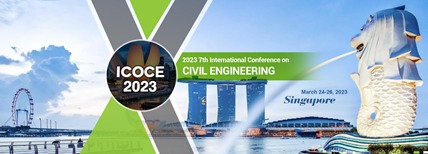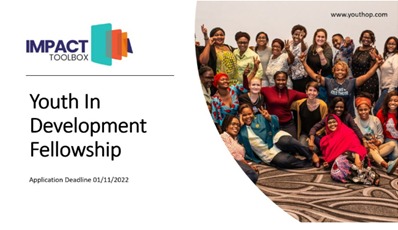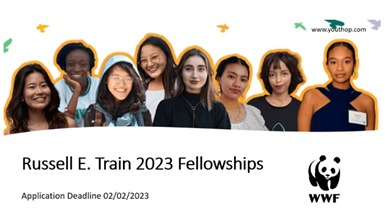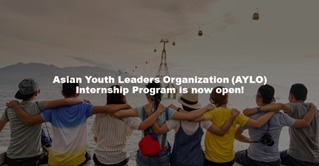Piped Water for Good Health in the Lao PDR
July 02, 2015

Life has always been hard for women in the small, poor villages of northern Lao People's Democratic Republic (Lao PDR). The daily ritual of fetching clean water was a particularly grueling task.
"I would get up in the morning before the children were awake and walk to the river and carry back the water," recalls Lee Chanmanee, a woman from Muang Houn District. "I'd go back to the river again and again until I had enough water for the day."
"The path to get there was not straight and quite difficult," says the mother of five. "I'd carry 20 liters at a time. It was very heavy."
Today, clean, safe water is piped into her home. The daily walk along the uneven dirt path is no longer necessary, and the water that her family is drinking is cleaner and safer.
"Our lives have improved a lot," she says. "Our family is healthier now and we've had very little sickness."
Lee is one of thousands of people in the Lao PDR who have benefited from the Northern and Central Regions Water Supply and Sanitation Sector Project. It was supported by ADB, with cofinancing from the Norwegian Agency for Development Cooperation, the Organization of Petroleum Exporting Countries Fund for International Development, and the United Nations Human Settlements Program.
The people in these remote, impoverished areas have for decades struggled to access clean, safe water. Most have never had the benefit of modern toilets. In 2005, when the project was being prepared, only 17% of households in small towns in the Lao PDR had piped water and more than 50% lacked modern toilets in their homes.
Lack of safe water and sanitation facilities had a significant impact on their health and ability to work and live with dignity. Women and girls were particularly hard hit, as they bore the burden of hauling water and the drudgery of dealing with problems affecting the health of their families. Instead of going to school or having a chance to work or socialize, they spent much of their time carrying water.
The solution: pipe clean water, construct modern drainage systems, and install toilets in people's homes to improve the health of families and cleanliness of villages. The goal of the project was to improve the quality of life in these small towns, as well as to help these areas become market centers for goods and services, especially from the rural areas.
"Piped water is important," says Phomma Veoravanh, deputy director general of the Department of Housing and Urban Planning in the Ministry of Public Works and Transport. "It has a big impact on the people, not just to eliminate poverty but also to support social and economic development.
"Clean, piped water most dramatically affects the lives of girls in small, poor communities," says Anupma Jain, senior social sector specialist in ADB. "It allows girls to attend school longer," she says. "Basically, without water supply, girls are assisting their mothers or other family members to collect water. This takes them away from staying in school or even attending school."
A challenge and an innovation
Although people desperately needed and wanted piped clean water in their homes, many were less enthusiastic about having modern toilets installed. Poor families struggling to pay for even the most basic expenses had little money left to put in toilets.
Bringing in clean water would have been much less effective if the project had not also addressed the issues of storm drains and modern toilets. People would still be getting sick. How can you help people install modern toilets in their homes when they can barely afford to pay their bills?
In response, the project offered free water connection for a limited time to those households that installed modern toilets. The water supply company then recovered the cost of these initial connections by spreading the payments over time. Poor households were also given grants to help them pay for the new toilets.
The charges were based on consumption, which was broken into three progressive tariff blocks: lifeline, normal, and highest. A lifeline tariff block corresponds to a minimum level of water consumption at a nominal fee. This makes the water more affordable for the poor, and spreads the costs of the service to customers within the water supply company's entire service area. This has improved the financial performance of the water companies and will help them continue to provide clean water for years to come.
"After we build the plants, our priority is to provide reliable service," notes Chertoua Kayingmoua, general manager of the water supply company in Oudomxay Province.
Proactive help
The project provided 24-hour clean water to 18,173 households (96,036 people) in 12 towns across the northern and central regions of the country. Some 17,565 households built modern toilets in their homes. Of these, 751 poor households received grants to help pay for the installation of toilets. In many of the villages, all households now have modern toilets. The project also provided access to water supply to about 3,000 households from ethnic groups and those headed by women—groups that are vulnerable and sometimes neglected.
Besides installing water distribution systems, the project built water treatment plants to maintain the quality of the water.
"The water supply plant is important because it delivers clean and drinkable water to the people," says Saysamone Vongsamphanh, general manager of the water supply company in Luang Namtha Province. "As a result, they have better health."
Helping women was a particular focus of the project. It not only helped women obtain clean water and modern toilets for their homes, but also trained them as water supply company workers, project management staff, and community managers. About one-third of government staff in project management units were women. Nearly half of the participants of the community water and sanitation workshops organized by the project were women. And nearly one-third of operation and maintenance training for water company staff were attended by women.
Life is much easier
Khamsian Kaewpanya is one of the women who helped their village obtain clean water and build modern toilets. She is a village water and sanitation coordinator in Oudomxay Province.
"It is very different now," she says. "Before we had to carry water and now we can get it from the tap. Since villagers have gained access to clean water, health problems have been reduced. Their lives are more comfortable now."
Reliable access to piped water supply has helped ease the burden on women and enabled them to earn money through local markets and ecotourism opportunities.
Bouatib Promsaengprasert, a village water and sanitation coordinator in Muang Sing District in Luang Namtha Province, notes that increased income for women has helped the entire family.
"Our lives are better since we got tap water," she says. "Now we have time to work in the market and support our families better."
In Muang Sing District, Bouakham says she used to spend two hours a day collecting 60 liters of untreated water for her family.
"Every morning I'd wake up, do the housework, and then go to the river to collect water. It would take 20 minutes for each trip," she recalls. "I'd go 2 or 3 times in the morning and do the same in the evening. So in all, it took about six times a day."
"Now, I can wash clothes and take a bath in the house. I also have more time for cooking and other things. Life is much easier with tap water."
This article was originally published in Together We Deliver, a publication highlighting successful ADB projects across Asia and the Pacific that demonstrated development impacts, best practice, and innovation.
Source: adb.org


















